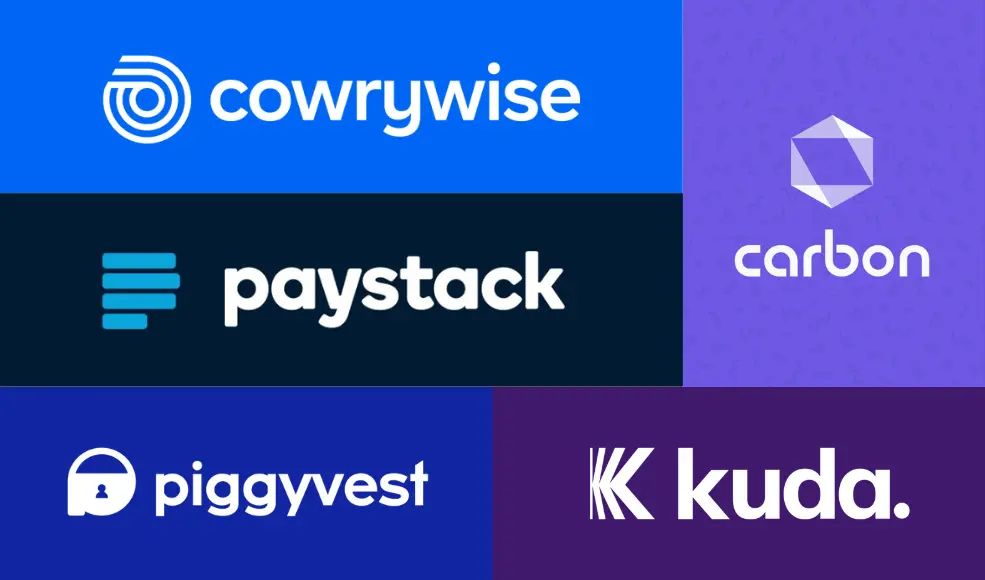Recent developments in the banking sector, such as the redesign of the naira and the scarcity of naira notes, have made many Nigerians reconsider leaving their money with commercial banks. Fintechs, on the other hand, is quickly becoming the better option because, unlike banks, they do not charge their customers to keep their money.
Previously, the fintech ecosystem had revolutionized access to finance and banking services. Because of the potential of these digital banks, global venture capitalists are pouring money into Nigerian fintechs.
As more fintechs emerge on a daily basis, the market is becoming increasingly competitive, as target customers now have a plethora of companies offering innovative financial services via mobile apps to choose from.
Interestingly, as more Nigerians use fintech apps for convenience and easy access to financial services on the go, the ones that provide the best services are rewarded with more customers. This is often reflected in the number of people who download their apps.
Both the iOS App Store and the Google Play Store have Nigerian fintech apps. Nairametrics, on the other hand, looked at their downloads figure on the Google Play Store, as the iOS Store does not show the number of downloads.
The following are the top ten fintech apps in Nigeria in terms of downloads as of January 2023.
10. Paga
Paga is a mobile money service that provides transfers, bill payments, top-ups, and even remittances. The company has over 17 million users and is also available to unbanked, offline users via a mobile money agent network. However, the Paga app has received fewer than a million downloads on Google Play.
Downloads: over 500k
4.1 rating
There have been 11,718 reviews.
9. Cowrywise
Cowrywise, which debuted in 2017, is a fintech app that provides savings with periodic, fixed, and one-time interest rates. With this app, you can securely manage your money and build your savings and investment portfolios. You can also save as an individual or as part of a group. The friendly user interface and the ‘Savings Challenge,’ which challenges you to engage in rigorous savings plans that help you build emergency funds or a better stash of funds at the end of the specified period, are notable highlights of Cowrywise.
Downloads: over 500k
4.4 rating
There have been 24,459 reviews.
8. Piggyvest
PiggyVest offers savings and investment tools to its over 3 million customers, but it is not a full-fledged digital bank. Fixed, flexible, goal-oriented, and automated savings options are available, as are pre-vetted low-medium risk primary and secondary investment avenues for 6 to 12 months.
1 million or more downloads
4.0 out of 5 stars 41,000 reviews
7. Carbon
Carbon is a CBN-licensed digital bank that offers loan services and investment opportunities in addition to standard digital banking features like debit cards. Accounts can be used for peer-to-peer payments, bill payments, and mobile recharges. Despite the fact that the fintech company currently has over two million customers, its app on Google Play has been downloaded by over one million people.
1 million or more downloads
4.5 out of 5
138,000 reviews
6. Palmcredit
Palmcredit is a Nigerian fintech app owned by Newedge Finance Limited that allows users to obtain a loan without the use of collateral. As one of the most downloaded fintech apps, it is safe to assume that many Nigerians are taking advantage of the loan services offered by the app.
5 million or more downloads
Review count: 168,000
5. JumiaPay
Jumia, an e-commerce company, launched its JumiaPay app in 2016 and it is now used to pay for more than 50% of sales on the platform. In addition, the company recently launched consumer loans on the app through collaborations with banks. Jumia pay was one of the most downloaded fintech apps on the Play Store in January, with over 5 million downloads.
5 million or more downloads
4.3 rating
132,000 votes
4. Kuda
The Central Bank of Nigeria has fully licensed the fintech, which is valued at $500 million (CBN). Despite its London headquarters, Kuda is currently focused on the Nigerian market. Kuda accounts include a free debit card, budgeting and spending controls, as well as transfer and savings functions. The bank has also eliminated maintenance fees and provides users with a monthly list of free transfers.
5 million or more downloads
4.0 stars based on 183,000 reviews
3. Palmpay
According to Google Play, the Palmpay fintech app was first released in September 2018. However, after obtaining a mobile money operator license from the Central Bank of Nigeria, the company launched a pilot phase in July 2019. (CBN). It became officially available to Nigerian users in November 2019.
5 million or more downloads
4.5 out of 5
331,000 reviews have been written.
2. OPay
On the strength of the popularity of its internet search engine in Africa, Opera’s Africa fintech startup OPay launched its mobile money platform in Lagos in 2018. OPay’s mobile money service allows users to pay for utilities, make P2P transfers, and save. Users who do not have smartphones can still conduct transactions through the company’s offline banking service.
10 million or more downloads
4.4 rating
275,000 reviews
1. FairMoney
FairMoney is a lending-focused digital bank. The company offers up to one million naira in instant loans, as well as a bank account and a debit card. FairMoney processes over 10,000 loans per day, with one loan disbursed every eight seconds, according to the company. While it and OPay have the same number of downloads and ratings, FairMoney has more user reviews, putting it ahead of OPay.
10 million or more downloads
4.4 rating
There have been 548,000 reviews.
Bottomline
While other fintechs with non-app-based services are doing well in Nigeria, some of those with apps now have more downloads than bank apps. Currently, none of Nigeria’s commercial banks have more than 10 million downloads on the Google Play Store, indicating that fintech apps are gaining traction.











